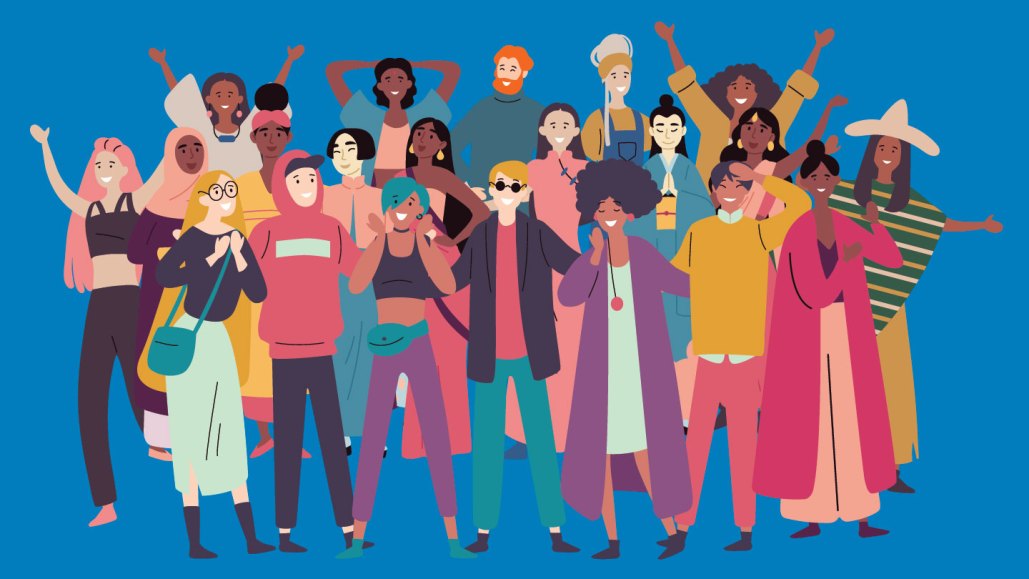Some cultures prioritize aspects of well-being over happiness

For seven consecutive years, Finland has been declared the happiest country in the world, according to the 2024 World Happiness Report unveiled on March 20. Other Nordic nations - Denmark, Iceland, Sweden, and Norway - are also in the top ten.
After the United Nations General Assembly proclaimed March 20 as the International Day of Happiness in 2012, various global agencies have been issuing happiness ratings each year along with comprehensive analysis on well-being. Beyond economic indicators like GDP, which encourages unsustainable growth, these ratings enable countries to measure national success and formulate policies to improve well-being.
However, the concept of happiness and its measurements may vary globally outside standard economic metrics of success.
Macropsychologist Kuba Krys of the Polish Academy of Sciences in Warsaw, who is not associated with the report, says cultural nuances can affect how people worldwide react to happiness surveys. He cautions against making significant findings based on such cross-cultural comparisons.
Furthermore, Krys reveals that the current understanding of happiness potentially has a Western bias, a tendency seen in societies that social scientists categorize as WEIRD - Western, educated, industrial, rich, and democratic.
The happiness ranking are based on responses to a single question in the Gallup World Poll: imagining a ladder from 0 (worst possible life) to 10 (best possible life); participants indicate where they feel they currently stand.
On this scale, the average position of Finnish participants was just below the eighth rung. U.S. participants stood approximately one rung lower, placing them 23rd overall. In contrast, respondents from Afghanistan did not reach the second step.
The World Gallup Poll asked the participants to visualize their life from the worst to the best possible scenarios and rated their position. Based on the aggregated ratings, the World Happiness rankings were formulated. As always, Nordic countries dominated the list, with non-Western nations like India and Tanzania ranking lower. However, many researchers argue this Western-centric understanding of happiness is problematic and may lack cultural validity.
Researchers including Krys question the reliability of these scores when compared across countries. In Tanzania, a country that ranks low in happiness, a study shows that over a third of 200 participants didn't comprehend the ranking question fully. The participants’ understanding of the question was based on their personal interpretation, leading to inconsistent responses.
International development consultant in Chicago, Michael Kaufman highlighted the issue: "Do people largely with a 7th grade education understand a Western concept of ranking your life’s experience on a linear scale?” He concluded, “The answer is: ‘No, they don’t.’”
Additionally, cultural psychologist Mohsen Joshanloo points out many people, especially outside the West, are wary that acknowledging high happiness can lead to adverse events, thereby reducing their scores on a standard survey.
Joshanloo explains, "Fear of happiness is very real and affects how people around the world experience and express their happiness and answer questions about their happiness."
Similarly, Krys’ research discovered that not everyone desires maximum happiness. He and his team analysed survey responses from around 13,000 people in 49 countries. Respondents were asked to assess how much an “ideal or perfect person” would concur with various statements denoting happiness. Sample statements included “In most ways, my life is close to my ideal,” and “The conditions of my life are excellent,” with responses ranged from 1 for “doesn’t describe him/her at all” to 9 for “describes him/her exactly.”
Ideal happiness varied widely by country, Krys and colleagues found. In Germany and Iceland, roughly 85 percent of participants responded that ideal happiness equated with scores of 7 and higher. But in Bhutan, Ghana, Nigeria, Japan and Pakistan, 70 percent or more of the respondents selected a lower ideal, the team reported in February in Perspectives on Psychological Science.
“We Westerners, we are driven by the maximization principle,” Krys says. “We want more of everything. It’s not universal.”
Theoretically, researchers could adjust rankings to reflect a culture’s ideal level of happiness. Perhaps Japan’s score of 6 on the ladder of happiness is really a point higher, or the United States’ score of 6.7 is really a point lower. But such a singular focus on happiness is itself problematic, Krys says.
Non-Westerners often place greater emphasis on other aspects of a good life, such as harmony, spirituality or meaning, research shows. And sometimes scores in one category conflict with scores in another. For example, poor countries that score low in happiness often score high in meaning in life, researchers reported in 2014 in the Journal of Research in Personality. The reverse held true for wealthier nations.
Researchers who work on the World Happiness Report are actively researching other measures of well-being that are potentially more widely applicable, says Lara Aknin, a social psychologist at Simon Fraser University in Burnaby, Canada, and a report co-editor.
In 2022, the report researchers explored the concepts of balance and harmony by zooming in on questions related to those concepts in the 2020 Gallup World Poll. People worldwide value those concepts, the team found. And with few exceptions, people everywhere tended to prefer a calm life over an exciting one.
“The findings … suggest that many people worldwide, not just those beyond North America, experience and prefer balance and harmony,” Aknin says.
Krys and others say that the solution is not to get rid of happiness rankings. Instead, they would like the report’s authors to issue a larger variety of well-being rankings. “Happiness is the Holy Grail in the World Happiness Report,” Krys says. “But happiness is not the universal, sole … aim of people’s lives.”




